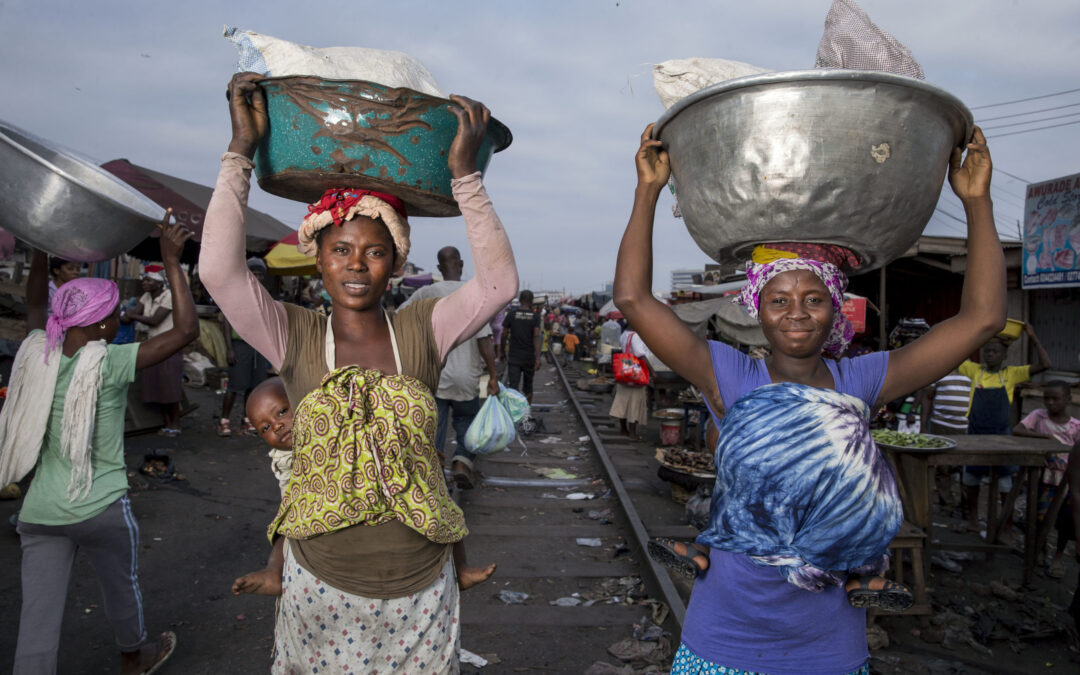
West Africa Union Health Care Campaign Celebrates Sierra Leone Funding Boost
A four-year, regional, health care rights campaign led by the Organization of Trade Unions of West Africa (OTUWA) is expanding its success and influence in the region with Sierra Leone’s Finance Minister last month announcing a 2 percent increase in the country’s budget allocation for the health sector, from 7 percent in 2024 to 9 percent in 2025.
“The Sierra Leone Labor Congress appreciates the increase as a success of our health care campaign,” says OTUWA Executive Secretary John Odah, while noting that Sierra Leone’s government has not met the 15 percent minimum annual budgetary health allocation to which African heads of state agreed in the landmark 2001 Abuja Declaration.
Like many countries in the region, in the context of mounting national debt, multinational tax dodging and illicit financial flows, Sierra Leone’s government is struggling to provide essential services to its citizens, including accessible health care.
Sierra Leone’s health care funding increase builds on the success of OTUWA’s “Health Care Is a Human Right” campaign this year in Nigeria, where the federal government in April announced a disbursement of almost $70 million to bolster the country’s health infrastructure.
Given that more than 80 percent of West Africa’s working people earn their living in poorly paid and uncertain informal-sector jobs, lack of access to state-provided health care or health insurance is placing an unfair financial burden on low‐income individuals and households, say unions. A United Nations report noted that 381 million people, or almost 5 percent of the world’s population, were pushed into extreme poverty in 2019 by out-of-pocket health expenditures.
OTUWA’s health care rights campaign unites West Africa’s unions in a fight for equal and fair health care access for all. Campaign participants, which include OTUWA affiliates and national health care unions, have been advocating since 2020 for the protection of health worker rights and effective, accessible health care for all with national and continent-wide African Union legislators and policymakers, including the Economic Community of West African States (ECOWAS) Parliament. An OTUWA survey of 700 health workers living in Gambia, Ghana, Nigeria, Senegal, Sierra Leone and Togo provided a window into the region’s health-sector shortcomings and presented a raft of recommendations that included increased funding for the health care sector across the region. This year, the campaign expanded its influence through an alliance with Public Services International, a global union federation that represents 30 million workers in 154 countries and, to preserve public resources, added good governance to its demands.
“We celebrate with our Sierra Leonean brothers and sisters and will continue to support unions that are demanding more investment by governments in the health of their citizens,” says Solidarity Center Africa Regional Program Director Christopher Johnson.
OTUWA represents trade union national centers in the 15 West African countries comprising ECOWAS. None of West Africa’s signatory governments–required by ECOWAS Fundamental Principles to promote and protect human rights in accordance with the African Union (AU) Charter on Human and People’s Rights, including provision of social protections such as health care–are implementing the 15 percent minimum annual budgetary health allocation.
